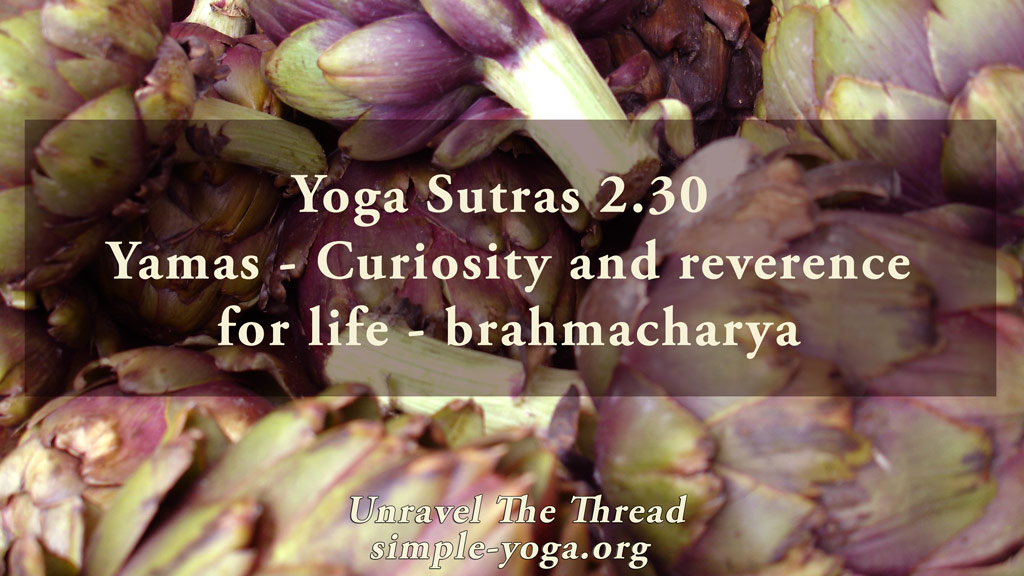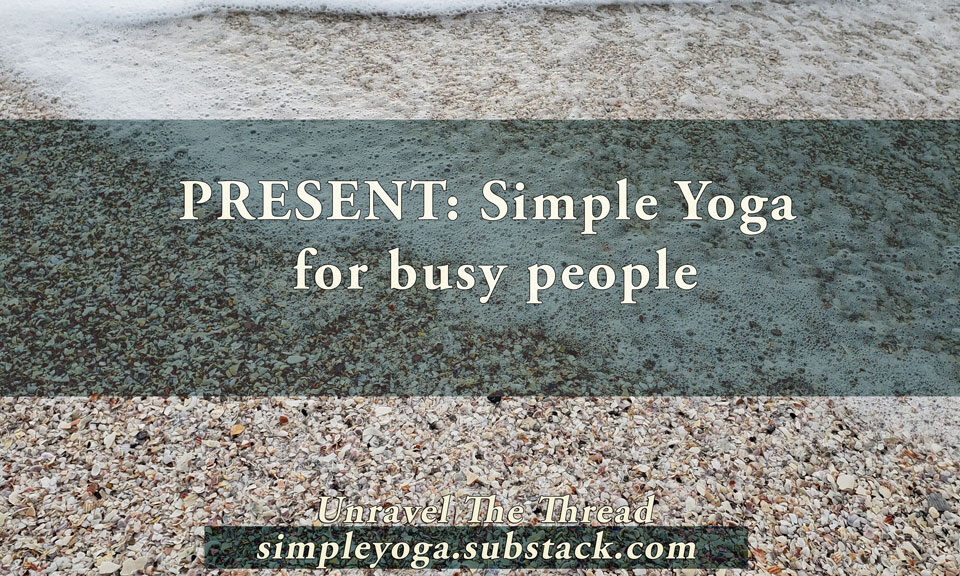
2.30 Yamas – Integrity (Satya)
September 21, 2020
2.30 Yamas: Curiosity and reverence for life (brahmacharya)
October 5, 2020
2.30 Yamas – Integrity (Satya)
September 21, 2020
2.30 Yamas: Curiosity and reverence for life (brahmacharya)
October 5, 20202.30 Yamas: Fairness and Generosity – Asteya

In Sanskrit the literal meaning of asteya is to refrain from stealing. Stealing can be understood as taking that which is not rightfully yours. In contemporary societies, belongings and fame are status symbols providing access to experiences, contacts and opportunities that tip the scales towards inequality. When what we have becomes more important than who we are and how we act, the accumulation of possessions can seem justifiable no matter at what cost to our integrity, to others, to society and to the environment. Isn’t that mindset what perpetuates the cycles of inequality affecting the world right now? Is it possible that some of these attitudes may be related to the assumptions mentioned earlier about the world being a place ruled by competition instead of cooperation? What specific steps can you take to cultivate fairness?
In addition, consider that every day you benefit from the energy of the sun, the protective magnetic shield of the earth’s atmosphere, the air that you breathe, the water that nourishes your body and the myriad of interrelations among the planet and all the living beings that make up the web of life. Although all of us benefit from these things, how are we embodying our thankfulness for these resources we may not be contributing to? To what extent do your actions reflect respect for all that you are receiving? Is your attitude regarding the resources available to you one of entitlement or gratitude? Which attitude is more aligned with fairness and generosity?
Besides, reflect on the fact that no human achievement has ever been the result of the actions of a single person but the accumulation of the countless actions of all human beings throughout history. In your actions, do you honor all of these interrelations? Are your actions and interactions contributing to enrich and affirm life or do they detract from it?
To complement these ideas, it may be beneficial to consider that at every single moment in your life you have had within reach all that you needed to navigate that moment successfully. Of course, what is within your reach may not be what you want or think you need. This idea provides a good path of inquiry into your perspective, attitude and expectations. What are the differences between what you want, expect and need? How do you know the difference? How do these ideas relate to the notion of fairness and generosity?
Furthermore, when you recognize that you are deeply embedded in the totality of life evolving from one moment to the next, you might be able to see all of these connections between what you receive, how you contribute to affirm life and how you strengthen the connections among all beings, from the most minuscule to the largest, to the whole universe. As a result, you might be better able to choose to act with fairness and generosity. Some further questions to guide you include: How am I expressing my gratitude for my life and all that I receive? What makes something mine? To what extent am I honoring what I have access to? Is what I am doing fair to others and to the environment? What does it cost me to be generous? You may also benefit from investigating if the actions that move you away from being generous may be a form of overcompensating for feeling that you are not enough. If that is the case, you can use the mantra, I AM ENOUGH, as a reminder.
As usual, one more way of exploring the meaning of this sutra is by chanting it.
You can choose to chant it in its traditional form with some of the words coming together:
2.30 ahiṃsāsatyāsteya brahmacaryāparigrahāḥ yamāḥ
अहिंसासत्यास्तेय ब्रह्मचर्यापरिग्रहाः यमाः ॥३०॥
Another option is to chant each word in the sutra individually:
- ahiṃsā
- satya
- asteya
- brahmacarya
- aparigrahāḥ
- yamāḥ
If you prefer, you may listen to the podcast:
Unravel the thread is now available as a book!
If you find Simple-Yoga.org and Unravel the thread useful, consider supporting my labor with a donation, you may also donate using PayPal or Venmo. Thank you!

